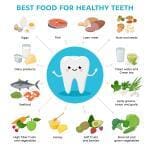Oral health is not merely confined to the state of one’s teeth and gums; it is an integral component of overall well-being. Emerging research has shown a significant and intricate relationship between psychological factors and oral health. The bidirectional nature of this relationship highlights the impact of psychological well-being on oral health, and conversely, the effects of oral health on psychological states. In this comprehensive article, we delve into the multifaceted connection between psychological factors and oral health, shedding light on the underlying mechanisms, implications, and strategies for maintaining a harmonious balance between the two.
The Mind-Mouth Connection: Unraveling the Mechanisms
- Stress and Oral Health
- Anxiety and Dental Phobia
- Depression and Self-Care
Stress and Oral Health
Stress is a ubiquitous aspect of modern life, and its effects reach far beyond mental well-being. Chronic stress can trigger a cascade of physiological responses that directly influence oral health. The release of stress hormones like cortisol can impact the immune system’s response to oral infections, making individuals more susceptible to gum disease and other oral health issues. Moreover, stress often leads to harmful behaviors like teeth grinding (bruxism) and nail-biting, which can cause enamel erosion and jaw pain.
Anxiety and Dental Phobia
Dental anxiety and phobia are well-documented psychological factors that can have profound implications for oral health. Individuals with dental phobia are more likely to avoid dental visits, leading to delayed or inadequate oral care. This avoidance can exacerbate dental problems and compromise overall oral health. Dental professionals play a pivotal role in addressing these psychological barriers by employing techniques such as cognitive-behavioral therapy and sedation dentistry.
Depression and Self-Care
Depression can sap an individual’s motivation and energy levels, often resulting in neglect of self-care routines, including oral hygiene. Poor oral hygiene practices can contribute to a range of oral health issues, such as cavities, gum disease, and bad breath. Furthermore, certain medications used to manage depression may have side effects that impact saliva production, leading to a dry mouth and an increased risk of dental decay.
Impact on Psychological Well-Being
- Self-Esteem and Body Image
- Social Interaction and Mental Health
Self-Esteem and Body Image
The appearance of one’s smile can significantly influence self-esteem and body image. Individuals with dental imperfections may experience feelings of shame and embarrassment, potentially leading to social withdrawal and isolation. Cosmetic dentistry interventions, such as teeth whitening and orthodontics, can play a role in enhancing self-perception and overall psychological well-being.
Social Interaction and Mental Health
Oral health has a profound impact on an individual’s ability to engage in social interactions. Difficulties with speech, chewing, or halitosis (bad breath) can lead to social anxiety and avoidance of social situations. The resulting isolation can contribute to feelings of loneliness and deteriorate mental health.
Promoting a Harmonious Relationship: Strategies for Maintenance
- Mindfulness and Stress Reduction
- Education and Empowerment
- Integrated Healthcare Approach
- Regular Dental Visits
Mindfulness and Stress Reduction
Mindfulness techniques, such as meditation and deep breathing, can help manage stress and its oral health implications. By reducing stress hormones, individuals can mitigate the risk of immune system suppression and associated oral health issues.
Education and Empowerment
Raising awareness about the bidirectional relationship between psychological factors and oral health is crucial. Educational initiatives can empower individuals to recognize the importance of oral care in maintaining their psychological well-being.
Integrated Healthcare Approach
Collaborative efforts between dental professionals and mental health practitioners can provide comprehensive care that addresses both oral health and psychological factors. This approach is particularly beneficial for individuals with dental phobia or conditions that require a holistic treatment plan.
Regular Dental Visits
Regular dental check-ups are essential not only for maintaining oral health but also for addressing underlying psychological factors. Open communication with dental professionals can help alleviate dental anxiety and ensure timely intervention.
Addressing Disparities: Equity in Access to Psychological and Oral Healthcare
While exploring the relationship between psychological factors and oral health, it is essential to address disparities in access to healthcare. Socioeconomic factors, geographical location, and cultural influences can all play a role in shaping an individual’s ability to seek both psychological and oral healthcare. To ensure a comprehensive approach that benefits all segments of society, several key considerations must be taken into account:
- Healthcare Infrastructure
- Education and Awareness
- Cultural Sensitivity
- Collaborative Efforts
- Telehealth and Technology
Healthcare Infrastructure
Access to both psychological and oral healthcare services should be readily available and affordable. Governments and healthcare organizations should invest in building a robust infrastructure that includes mental health facilities and dental clinics in underserved areas.
Education and Awareness
Raising awareness about the importance of both psychological well-being and oral health is vital, especially in communities where these topics might be stigmatized or overlooked. Educational programs and campaigns can empower individuals to prioritize their overall health.
Cultural Sensitivity
Cultural beliefs and practices can influence an individual’s attitudes towards both psychological and oral health. Healthcare professionals should receive training to be culturally sensitive and responsive, ensuring that care is tailored to each individual’s background and needs.
Collaborative Efforts
Collaboration between mental health professionals, dental practitioners, and primary care physicians can lead to more holistic and coordinated care. Integrated clinics or referral systems can help individuals access the necessary services more efficiently.
Telehealth and Technology
The use of telehealth and digital platforms can bridge the gap in access to care, particularly in remote or underserved areas. Virtual consultations and online resources can provide guidance and support for both psychological and oral health concerns.
Future Directions: Advancing Research and Practice
The evolving understanding of the relationship between psychological factors and oral health presents exciting opportunities for future research and practice. Here are a few avenues that warrant further exploration:
- Neurobiological Mechanisms
- Preventive Strategies
- Public Policy and Advocacy
- Longitudinal Studies
Neurobiological Mechanisms
Investigating the neurobiological pathways that link psychological states to oral health can provide deeper insights into the mind-mouth connection. Understanding how the brain influences oral health and vice versa could lead to innovative interventions.
Preventive Strategies
Developing targeted interventions that focus on preventing oral health issues through psychological interventions could revolutionize healthcare. Strategies that promote stress reduction, anxiety management, and improved self-care routines could have far-reaching benefits.
Public Policy and Advocacy
Advocating for policies that prioritize both psychological and oral healthcare can lead to a more integrated and comprehensive approach to well-being. Public health initiatives and campaigns can raise awareness and drive positive change.
Longitudinal Studies
Conducting longitudinal studies that track individuals over time can help establish causal relationships between psychological factors and oral health outcomes. This can guide the development of evidence-based interventions.
Conclusion
The intricate interplay between psychological factors and oral health underscores the need for a holistic approach to healthcare. As the fields of psychology and dentistry continue to converge, it is imperative to recognize the far-reaching implications of this relationship. By addressing psychological well-being alongside oral health, individuals can experience a higher quality of life and overall well-being.
The journey towards a harmonious mind-mouth connection involves interdisciplinary collaboration, patient education, and societal awareness. As research continues to shed light on the underlying mechanisms and practical strategies, healthcare systems can evolve to provide more comprehensive and equitable care. By nurturing both mental and oral health, individuals can enjoy a vibrant and fulfilling life, where the well-being of the mind and the health of the mouth go hand in hand.





